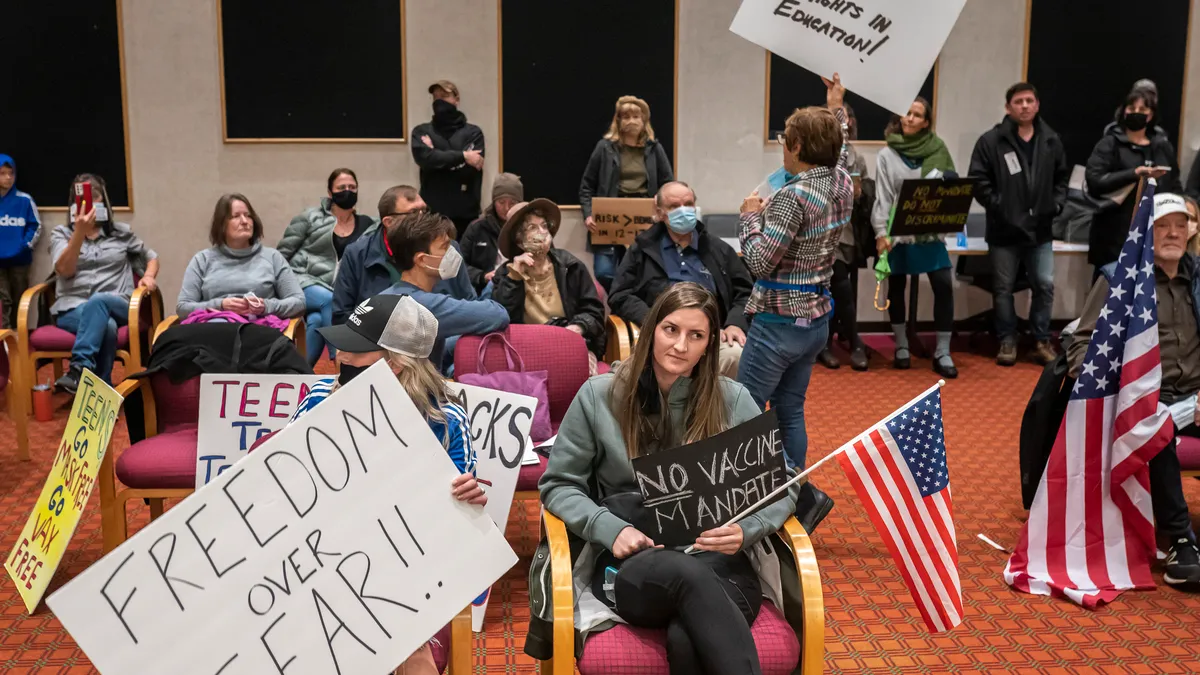Dive Brief:
- The debate over the value of voucher programs and other initiatives that direct public funds to private schools has been waging for some time, and while some early studies seemed to support the impact of voucher programs on student achievement, more recent research is offering different conclusions, Chalkbeat reports.
- Many recent studies suggest voucher programs have a negative effect on student test scores, especially in math, but have neutral or positive impacts on student outcome metrics like graduation rates or college attendance. Moreover, parents generally are more satisfied with private schools, studies show.
- Voucher programs targeted at low-income students are not likely to increase segregation, though critics fear a larger-scale program might. And despite the debate over the impact of vouchers on students who gain them, there is significant evidence that test scores at public schools improve because of the competition.
Dive Insight:
While the voucher concept has, in a sense, long been a feature of higher education, the K-12 school voucher debate has been going on for more than two decades now and shows little sign of stopping. States handle the idea in various ways, with some using vouchers, others using tax credit tuition programs, and some using neither. However, while the notion that school choice should be available in some form is growing in acceptance and seems to be increasing public school performance because of the forced competition, uneasiness with the idea remains on both the public and private sides of the equation.
Some critics say that vouchers and tax credits weaken public schools by siphoning funds that would normally flow to public schools and giving them to private schools instead. The same argument is often made with regard to charter schools. However, proponents argue taxpayer funds come from the pockets of private school, charter school and homeschool parents, as well, and that public schools should not assume the funds belong to them. Instead, they counter that public schools should use their funds more wisely, especially as the cost per pupil to educate students at private schools is usually much lower than public schools.
Some private schools are also wary of accepting vouchers, as well, because accepting federal or state dollars could subject them to the same accountability and attached strings that have been argued to hinder innovation efforts in public schools. In the beginning, few strings were attached to voucher funding, but this seems to be shifting over time as many private schools expected it would. Some of the strings they fear are ideological — that they may not be allowed to teach according to their religious doctrines and moral code. However, other strings include testing requirements.
While many private schools test their students, they do not necessarily use the same tests — or nearly as many — as public schools because they don’t see that model as necessary or fear that the high-stakes testing environment would affect the way they teach, as is often the case for their public counterparts.
Over the course of the past two decades, the use of vouchers hasn't produced the clear, positive academic results advocates had hoped for. However, their use has sparked a sense of competition that has led many public schools to step up their game in ways that seem to have improved some elements of the system, and evidence has also shown improvement under the model for specific populations, like students of color.






 Dive Awards
Dive Awards






